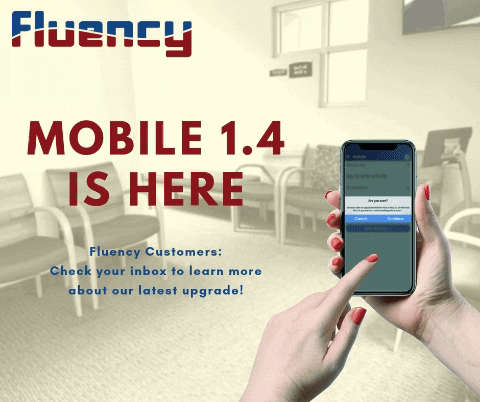Bill GlasserPresident, Fluency, Inc. I read with great interest the other day an article in the New York Times by Nellie Bowles, the Times technology writer titled: Human Contact is Now A Luxury Good (https://www.nytimes.com/2019/03/23/sunday-review/human-contact-luxury-screens.html )
What Bowles discussed was that increasingly, wealthy people will pay for human-to-human interaction and eschew computer screens for their important interactions, while the rest of us will get a screen to mediate our social, economic and healthcare needs. What started out as a status symbol for the rich; wired car phones, pagers, and huge clunky cell phones, has now become so ubiquitous that its very pervasiveness is precisely why the wealthy are going in the opposite, non-device, very expensive future of human-to-human interaction. And what is more alarming, is that new generations of people won’t know the difference, having been weaned on screens since infancy, many will never know the difference of a human in the room! New studies have shown that giving toddlers iPads supplants the basic human interaction so necessary for proper cognitive and interpersonal development (https://www.cbsnews.com/news/groundbreaking-study-examines-effects-of-screen-time-on-kids-60-minutes/ ). We are creating the environment where a personal interaction with a teacher, doctor or therapist will not only be foreign but quite possibly uncomfortably difficult to navigate for someone who only knows life’s profound lessons via a screen! Perhaps, in the not too distant future, our humanity will have been boiled down to device dependency so massive that many in the middle and lower classes will never know what it will be like to have a teacher, doctor or therapist in the room, much less a live in-person interpreter with them. I know. It’s another Bill Glasser dystopian and far-fetched vision of the future. But disruption is the order of the day. Just ask the stock brokers, Realtors and travel agents how their industries have fared since the advent of the Internet. You might want to check in with the Artificial Intelligence magicians at Google and Microsoft who will render speech-to-speech translation a reality within short order. So, what will become of the in-person interpreter? Will much fewer of us survive on a living salary by serving the LEP family members of the wealthy uber-class of the future? As remote video interpreting modalities are increasingly deployed across medical campuses and outpatient clinics, are we segmenting the work into high-touch, high quality language access work reserved only for those clinics catering to high net worth patients carrying the best insurance? Will medical systems competing for these “whale” patients toss in the in-person interpreter as another diamond star amenity necessary to attract high value LEP families? Hearing, understanding and digesting critical healthcare information should be available to all people in all interpreting modalities irrespective of a patient’s economic status. It is precisely why federal laws establishing language access expressly forbids compelling patients to pay for the interpreting services they must have… so it can be made available to all members of our community. Unfortunately, I remain doubtful that LEP patients of limited means will forever enjoy the benefits of the in-person interpreter. It simply goes against the overwhelming sweep of technological disruption and the dependency our health systems have on making more money and reducing costs. At the end of the day we are all in business and language access and the human rights they help guarantee is going to get more remote, less costly and more automated, eventually removing the human interpreter all together. |
|
(800) 522-7512
6825 Fair Oaks Blvd, Suite 110 Carmichael, CA 95608 |
© COPYRIGHT 2023. ALL RIGHTS RESERVED.




